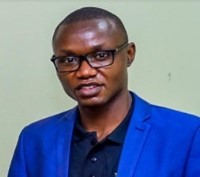FEATURED PAPER
By Dr. Ronal Kwena
Rwanda
ABSTRACT
The financial system in Africa is bank dominant, and it is characterised by inefficient intermediation and limited competition. Lending is mostly short-term, and a large share of assets is in the form of government securities. Moreover, there exists a large financial gap for SMEs in Africa. Many women-owned SMEs report finance as the most challenging part of growth because of high-interest rates, a burdensome application process, and large collateral requirements. In the case of women-owned SMEs, it is much harder, as fewer African women have bank accounts in comparison to men. The study will covers 94 projects implemented by women-owned SMEs in Remera sector, Gasabo district, Rwanda as sample size. The study will used descriptive research design where questionnaire was used as to collect data techniques and descriptive statistics and inferential statistics was used to analysis data. The study recommends that the management of projects implemented by small and medium enterprises should consider using internal funds to finance their projects if these funds are available. The study recommends that the organization should strive to use more of its internal resources so as to gain overall control and decision-making powers for its projects.
INTRODUCTION
In Rwanda, the government of Rwanda is aware of the high levels of unemployment and has therefore put up measures to reverse the situation. Various campaigns targeting sensitization on innovation and entrepreneurship among the Rwandan youths have been launched. The government has come up with measures to avail finances to the young investors and entrepreneurs have been made possible through BDF, MFIs and SACCO so as to enable the young entrepreneurs’ access to the finances they require to finance their projects and business activities. Deliberate measures by the Rwandan government to set up funds targeting the Rwandan business and projects young entrepreneurs is one major initiative to curb on the rising levels of unemployment through encouraging self-employment among the youths. BDF are some of the initiatives by the Rwandan government to provide soft loans and grants to the youth entrepreneurs so as to carry out their projects and run their SMEs with less financial strain (MINECOFIN, 2016).
Due to increased level of unemployment, many individuals have engaged in MEs as source of employment. Given the status of the business environment where the competition is intense, SMEs need adequate financial means to survive. To stay highly competitive in the market place, research needs to be done to cater for the needs of the consumers. Any shortage in financial resources may hinder the project implemented by SMEs from growing (Raihana, 2017). To meet their financial needs, SMEs have sought project financial from financial institutions such as commercial banks, SACCOs, micro financial institutions, self-help groups, mobile money and others (Financial Sector Depening, 2016).
Despite these efforts most of these SMEs have challenges such as loss of property due to loan repayment default. Over 50 percent of borrowers sale their assets to repay loans. A quarter of the borrowers are over leveraged with debts serving repayments over half their monthly expenditures and 18 percent have defaulted. Over two thirds of borrowers experienced at least two of these conditions (BNR, 2019). Moreover, alternative and more innovative financing instruments compared to loans such as private equity or mezzanine is still seldom used, unknown, or not available depending on the geographical location of the SME. This situation causes many projects implemented by SMEs to fail.
More…
To read entire paper, click here
How to cite this paper: Kwena, R. (2024). Project Financing in Small and Medium Enterprises in Rwanda; PM World Journal, Vol. XIII, Issue II, February. Available online at https://pmworldlibrary.net/wp-content/uploads/2024/02/pmwj138-Feb2024-Kwena-project-financing-in-SMEs-in-Rwanda.pdf
About the Author

Dr. Ronald Kwena
Kigali, Rwanda
![]()
Dr Ronald Kwena holds a PhD in Project management, an Msc in Project Management and BA Finance. He is the Dean Graduate School and Project management Faculty at the Graduate School, University of Kigali, Rwanda. He has vast experience in Project management, Monitoring and evaluation having held full time and consultancy assignments in reputable Institutions across East Africa. Dr Kwena has overseen multiple projects from inception to completion in Private sectors, public sector and International Non – Governmental Organizations. Dr Kwena has successfully supervised graduate students research. He has published a book “Rural Water Sustainability in Kenya” available on Amazon. He has also published numerous articles that can be accessed via Google Scholar. Dr. Kwena can be contacted at ronaldkwena@gmail.com.









